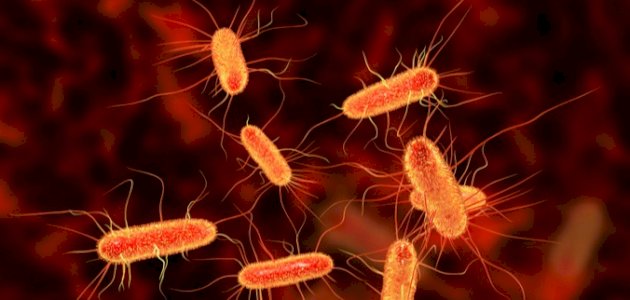Al Anbat- Dalal Omar
Translated by Deema Alkhateeb
Dr. Saeb Abu Aboud, Director of Health Affairs in Balqa Governorate, said that a case of illness reviewed by one of the health centers in Al-Salt was found after tests to suffer from "E Coli", which is caused by food sources from vegetables rather than water sources, where one case was identified and two cases were suspected from the same house.
For his part, Clinical Pharmacotherapy Consultant Dr. Dira Al-Balawi explained about "E Coli" bacteria, which is a type of bacteria that lives in the intestines of the human and the animal body naturally and has their own strains characterized as causing no harm, but their presence may be associated with diarrhoea. As for bad strains cause severe stomach disorders, vomiting and blood diarrhoea.
Al-Balawi said in a special talk to "Al Anbat "that this bacteria can be infected by eating contaminated foods and drinks, especially raw vegetables and uncooked meat. The infected person may recover from this bacteria within one week of being exposed to it, but the exposure of children to these bacteria may lead their lives at risk.
He continued that there are two types of E coli-bacteria, good E coli-bacteria and harmful E coli-bacteria, some of which are found in the gut of the human body and contribute to the maintenance of the body's health. Others may lead to serious illness that can put humans at risk of death, noting that scientists can determine the difference between good and harmful bacteria in very small samples in just a few minutes using modern technology based on the gradients of the microscopic electric field after research in bacteria species has been difficult and can take a long time and sometimes reach days.
Al-Balawi noted that some types of bacteria lead to an intestinal infection as well as other strains of bacteria that lead to intestinal disease and the symptoms of intestinal infection begin between the first day and the tenth day of infection, and the symptoms remain for 5 to 10 days after their appearance.
He also mentioned the symptoms of the infection, which are abnormal spasms ,sudden and severe watery diarrhoea with the potential for bloody feces, gas release, nausea, loss of appetite, vomiting and general fatigue as well as fever.
As for severe symptoms of bacteria are bloody urine, reduced urine production, pale skin, bruises, and dehydration.
Al-Balawi emphasized that contaminated food is one of the most common causes of such bacteria as minced meat, unpasteurized milk and fresh agricultural products, particularly contaminated water where human and animal faeces can reach ground and surface waters in some outbreaks of bacteria despite the use of chlorine and ultraviolet or ozone to kill E coli, wells are a source of concern as they do not contain disinfection systems.
He continued that personal contact is a major cause of " E Coli" infection, especially if the hands are not washed in the right way, and family members with young children carrying this infection are at risk of contracting it.
He said that human beings were exposed to diarrhoea only through a few E coli-species; Some types release a strong toxin that destroys the lining of the small intestine, which leads to blood diarrhoea.The doctor must be visited immediately upon severe, bloody or persistent diarrhoea, where the doctor sends a sample of stool to the laboratory to diagnose Ecoli-infection and search for the presence of bacteria in the stool. The laboratory may also transplant the bacteria to verify the diagnosis and confirm the presence of a number of toxins produced through some types of Ecoli-bacteria.
Al-Balawi explained how to get rid of the germ, saying that it often disappears on its own. As for diarrhoea-related bacteria, such as watery diarrhoea, their symptoms can be treated or their symptoms shortened by the use of antibiotics, and in severe cases of disease, these drugs can be used.However, antibiotics must not be taken in the event of suspicion of toxin-producing ecolabies, fever or blood diarrhoea; Taking antibiotics increases toxin production and exacerbates symptoms. Rest and a lot of fluids must be obtained to compensate for lost fluids.Diarrhoea-resistant medicines that do not require prescription should not be taken, and foods containing low fibres should be taken after improvement such as rice and eggs; High-fibre foods exacerbate symptoms.Diarrhoea-resistant medicines that do not require prescription should not be taken, and foods containing low fibres should be taken after improvement such as rice and eggs; High-fibre foods exacerbate symptoms.Diarrhoea-resistant medicines that do not require prescription should not be taken, and foods containing low fibres should be taken after improvement such as rice and eggs; High-fibre foods exacerbate symptoms.
He emphasized ways of preventing E-coli bacteria by washing hands well before starting to prepare food and preparing bottles of milk for infants, before touching infants' purposes in the mouth, after using the bathroom and changing children's diapers, after communicating with animals even pets, and after touching uncooked meat.
Infections can also be avoided by wary of the foods they may bear, such as cooking meat to 71 degrees, eating only milk and pasteurized juices, washing all products before they are used, emphasizing that the best ways to keep the family healthy and avoid infection are to wash tools and separate uncooked foods from cooked foods.

